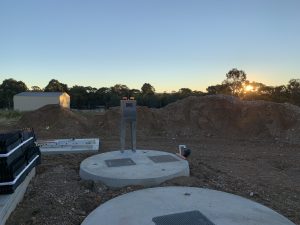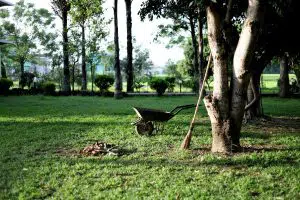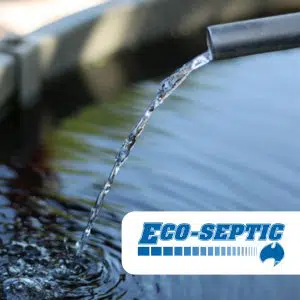What is the Best Domestic Sewage Treatment Plant?
If you’re in the market for a new domestic sewage treatment plant, it can be helpful to know what makes up a good system. To find out how to choose the best domestic sewage treatment plant for you, we have outlined some important considerations to weigh up before making a decision and then a purchase.
There are a few key things to look at when assessing different domestic sewage treatment plants. The type of material, pricing and other factors will all go towards finding the right domestic sewage treatment plant to suit your needs.
Consider the tank material
One of the first things to look at is the type of material that has been used for the tank. There are a few different types of material used in the industry – glass-reinforced plastic (GRP), high-density polyethene (HDPE), polypropylene (PP) and concrete are all commonly used.
GRP is an older type of material that is quite outdated, with most manufacturers choosing alternatives for their tanks. The construction of these types of tanks is their main drawback, as they are formed using multiple parts that are locked in place. Over time, gaps develop between the joints which can cause leaks that significantly damage the plant.
HDPE is a dense plastic material that is incredibly resilient, but it too can warp over time. This can be remedied with stainless steel reinforcement, which makes for an exceptional domestic sewage treatment plant. PP offers similar resilience but is less expensive and not as likely to degrade and warp.
Pre-cast concrete is an excellent material for tanks. Overall, it is a great choice and makes for the best long-term investment.
Think about running costs
The easiest thing to look at when considering running costs is power consumption. Many domestic sewage treatment plants are completely non-electric, which means running costs are incredibly small. The initial price and availability of these types of plants can be a problem, though.
For electric plants, it’s best to look at the certification of the model as this will give you a clear indication of power consumption. The EN12566-3 certificate should be available for all types of domestic sewage treatment plant, so compare these to find the most cost-effective one.
Look into the effluent quality
Effluent quality takes several factors into consideration to rate the overall performance of each domestic sewage treatment plant. The most important factor will be the ammonia levels in the tank, as this is a very noxious substance that can cause problems for the tank and surrounding environment.
To get a good indication of effluent quality, look at the EN12566-3 certificate once more. This should highlight effluent quality as well as the ammonia levels.
These are the three biggest things to consider before purchasing a new domestic sewage treatment plant. You will also need to think about how and where the plant will be placed and the initial cost of the new plant. If you need any more help finding the right domestic sewage treatment plan, talk to us today at Eco-Septic.
Eco-Septic is a Sydney-based manufacturer and specialises in commercial wastewater systems of various shapes and designs. We can provide fast and free quotes relevant to your commercial wastewater needs, all while keeping in mind individual spending capabilities.
Contact us today for a fast quote at 1800 808 135 or visit us at www.ecoseptic.com.au.
We cover all Sydney suburbs as well as the regions of South Coast, Snowy Mountains, Southern Highlands, Riverina, Blue Mountains and Hawkesbury, Laguna, North and Mid North Coast, Bateman’s Bay, Nowra, Mallacoota, Narooma, Balmoral, Cobargo, Glenn Ines, Avondale, Glenmore, Mogo, Tarago, Torrumbarry, Albury, Faulconbridge, Maraylya, Sherbrooke, Strathdickie, Little Hartley, Linden, cattail, Bowen Mountain, Murwillumbah, Kyogle, Bryon Bay, Lismore, Evan Heads, Yamba, Grafton and surrounding areas.
Related Posts
- Beyond the Tank: Unlocking the Potential of Treated Septic Water in Australia
- What Are The Sources Of Wastewater?
- How the wastewater treatment process works
- Why is Aeration Used in Wastewater Treatment
- What are the Two Types of Wastewater
- What is a home sewage treatment plant
- Choosing the Right Septic Tank Additives: What Works and What to Avoid
- How To Make Sure You Have The Right Septic Tank For Your Home






